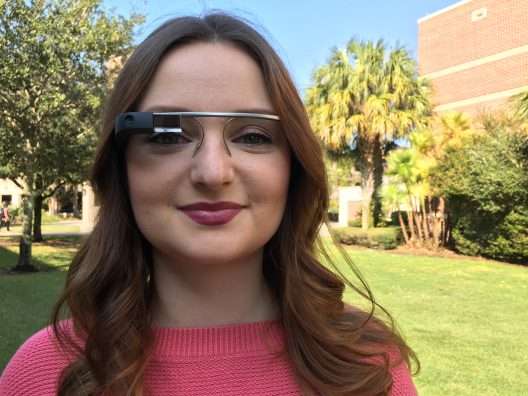Research finds google glass technology may slow down response time

Heads-up display technology—think Google Glass—offers lots of information to users in seconds, literally in front of their eyes. Access to information is critical in today's fast-paced world, but new research at the University of Central Florida indicates that the multitasking needed to process that readily available information may slow down the brain's response time.
That could pose issues for people driving, when a delay of a few seconds could mean the difference between life and death.
"The idea here is to explore to what extent displayed secondary information might interfere with the primary task at hand, such as driving," said Mark Neider, a UCF psychology associate professor. "What our data suggests is secondary information presented on a heads-up display is likely to interfere, and if that happens while driving, it may be distracting and dangerous."
Neider is doctoral student Joanna Lewis' faculty advisor. She led the three-year research conducted at UCF's Applied Cognition and Aging Laboratory. Her findings were published Nov. 5 in the Cognitive Research: Principles and Implications journal.
"I am deeply interested in multitasking and what's happening with our cognitive processing when this is happening," Lewis said. "We're trying to understand that at a theoretical level."
Lewis had 363 UCF psychology student participants complete a primary task similar to "Where's Waldo?" on a computer, while some wore Google Glass and others did not. Participants were told to complete the primary task and were given secondary instructions based on which experiment they were in. Some students were told to ignore the information that pops up on Google Glass, while others were told to try to remember the information. In all the experiments, students wearing the Google Glass technology, which is worn like eyeglasses and displays a small screen over the user's right eye, took longer to complete the primary task than those who were not.
Potential reasons behind these findings are that humans have a natural inclination to process language, and in this case two visual stimuli - the primary task and the secondary information from Google Glass - were competing for the visual-processing capabilities in the students' brains, resulting in the slower pace to complete the primary task, Lewis said.
Although Google Glass currently is not a widespread product, the heads-up technology it uses is gaining popularity. Some automobile manufacturers have introduced this technology into its vehicles by displaying speed on the windshield, among other scenarios. Although the vehicle's speed is related to the primary task of driving, the technology opens doors to the possibility of information not related to driving being displayed.
"The goal here is to make the case that we should be careful, and just because we can [integrate heads-up display technology into everyday activities] doesn't mean we should," Lewis said.
Lewis used this research as the groundwork for her dissertation, which will explore eye movements when someone is being distracted. Ultimately, the opportunity to conduct research with real-world impacts is what drew Lewis to UCF in 2012. Since then, she's conducted over a dozen research projects as a doctoral student and also was awarded just one of 11 National Science Foundation's Graduate Research Fellowships in Cognitive Psychology in 2014.
"This is a demonstration of the high-quality research being conducted at UCF," Neider said.
See here for more on Lewis' research.


















